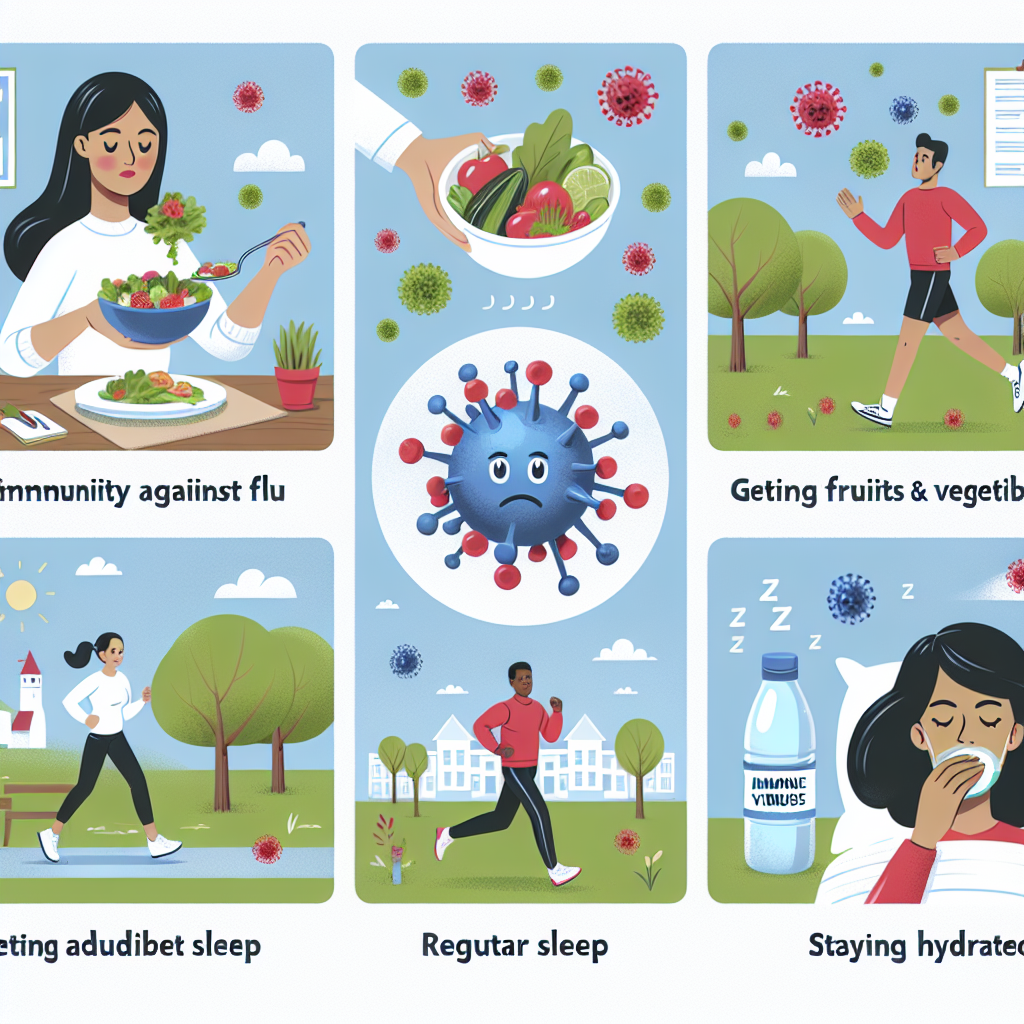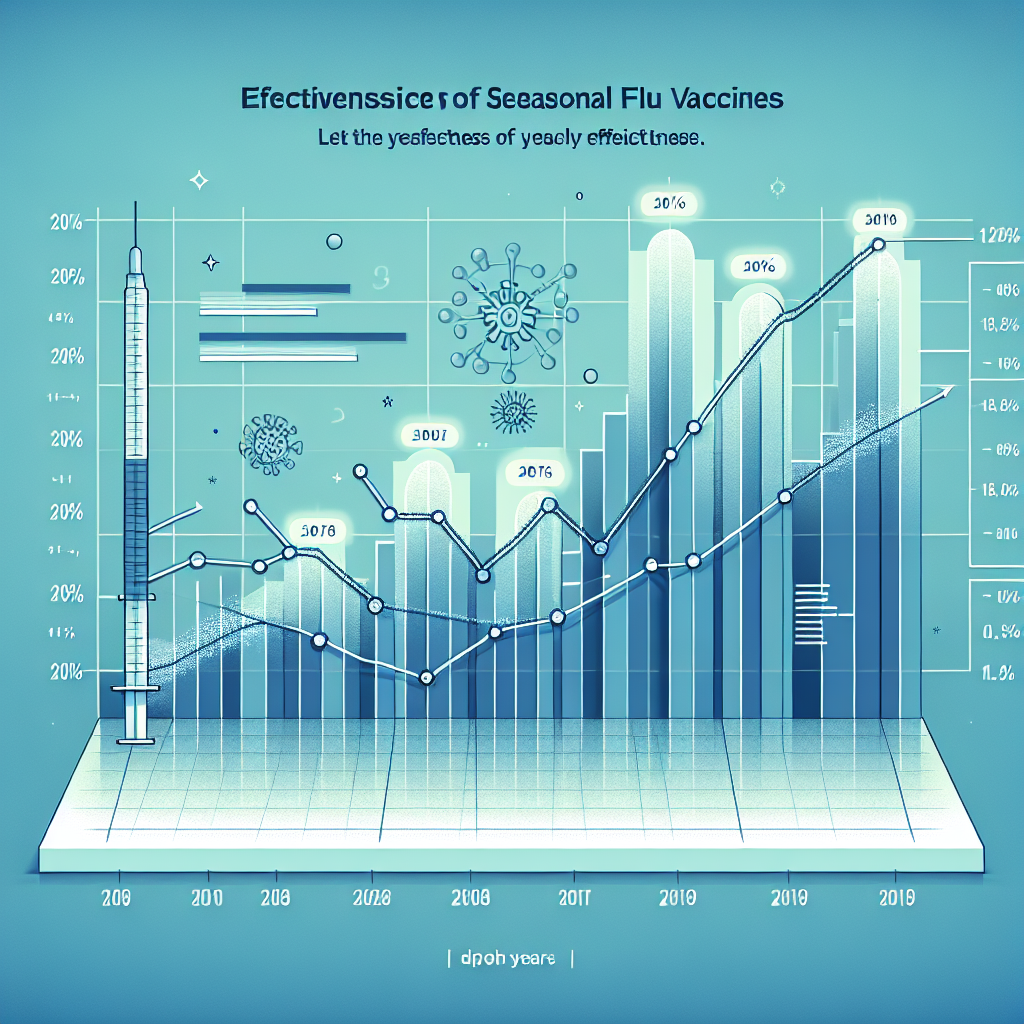How to strengthen immunity against flu?
As the flu season approaches, understanding how to bolster your immune system becomes essential for maintaining health and well-being. The flu, caused by influenza viruses, can lead to significant illness, and in severe cases, hospitalization. Strengthening your immunity not only helps reduce the likelihood of contracting the virus but also aids in a quicker recovery if you do fall ill. This article will explore the immune system’s role in flu defense, essential nutrients for immune support, lifestyle changes that can enhance immunity, and best practices for flu prevention.
Understanding the Immune System’s Role in Flu Defense
The immune system is a complex network of cells, tissues, and organs working collaboratively to defend the body against pathogens such as viruses and bacteria. When the body encounters the influenza virus, the immune system activates a response involving various types of white blood cells, antibodies, and cytokines. This response aims to neutralize the virus and eliminate infected cells, preventing further replication and spread. A well-functioning immune system can often adequately respond to the flu virus, reducing the severity and duration of illness.
The effectiveness of the immune response can vary from person to person and can be influenced by several factors, including age, genetics, and overall health. For instance, young children and older adults often have weaker immune responses, making them more susceptible to the flu. Additionally, chronic conditions such as diabetes or heart disease can impair immune function. Understanding these dynamics helps individuals recognize the importance of taking proactive measures to strengthen their immunity, especially during peak flu season.
Moreover, the immune system is not static; it adapts and evolves based on exposure to pathogens. Vaccination plays a critical role in preparing the immune system to recognize and combat specific strains of the flu virus. By receiving an annual flu vaccine, individuals can prime their immune systems to mount an effective response, significantly reducing the risk of infection and complications. For more information on how vaccines work, check out this helpful resource on immunology.
Essential Nutrients and Supplements for Immune Support
A balanced diet rich in essential nutrients is pivotal in supporting immune function. Vitamins and minerals such as Vitamin C, Vitamin D, and Zinc play crucial roles in maintaining a robust immune response. Vitamin C, found in citrus fruits, bell peppers, and broccoli, is known for its antioxidant properties and ability to stimulate the production of white blood cells. Similarly, Vitamin D, which can be synthesized from sunlight or obtained through dietary sources like fatty fish and fortified foods, has been linked to enhanced pathogen-fighting effects of monocytes and macrophages.
Zinc, a trace mineral required for immune cell development and function, can be found in foods such as meat, shellfish, legumes, seeds, and nuts. Studies have shown that zinc deficiency can lead to a weakened immune response, making supplementation during flu season beneficial for some individuals. However, it is essential to consult with a healthcare professional before starting any supplementation regimen, as excessive intake can cause adverse effects.
In addition to vitamins and minerals, certain herbal supplements like echinacea and elderberry have gained popularity for their potential immune-boosting properties. While more research is needed to confirm their efficacy, some studies suggest that these herbs may help reduce the duration and severity of flu symptoms. To explore other potential supplements, consider visiting this informative health website.
Lifestyle Changes to Enhance Immunity During Flu Season
Adopting a healthy lifestyle is fundamental in enhancing immune function, particularly during flu season. Regular physical activity has been shown to improve circulation, promoting the efficient movement of immune cells throughout the body. Engaging in moderate-intensity exercises, such as brisk walking or cycling, for at least 150 minutes a week can bolster immune resilience. Furthermore, exercise can help reduce stress levels and improve sleep quality, both of which are critical for maintaining a healthy immune system.
Stress management is another essential component of immune health. Chronic stress can lead to the release of cortisol, a hormone that can suppress the immune system over time. Techniques such as mindfulness meditation, deep breathing exercises, and yoga can effectively reduce stress levels. Incorporating these practices into your daily routine can not only enhance your overall well-being but also strengthen your body’s defense against the flu.
Another vital aspect of a healthy lifestyle is adequate sleep. Quality sleep is crucial for immune function, as most immune responses occur during sleep. Adults should aim for 7-9 hours of sleep per night to allow the body to recover and regenerate. Establishing a consistent sleep schedule, creating a relaxing bedtime routine, and limiting screen time before bed can help improve sleep quality. For more tips on achieving better sleep, visit this sleep health resource.
Best Practices for Flu Prevention and Immune Strengthening
Implementing best practices for flu prevention can significantly reduce the risk of infection. One of the most effective measures is getting vaccinated against the flu each year. The vaccine is designed to protect against the most common strains of the virus and is recommended for everyone over six months of age. Alongside vaccination, practicing good hygiene is equally essential. Regular handwashing with soap and water, especially before meals and after using the restroom, can help prevent the spread of germs.
Staying away from crowded places during flu season can also reduce exposure to the virus. If you are in a high-risk group or live with someone who is, consider wearing a mask in crowded settings. Additionally, maintaining proper respiratory hygiene—covering your mouth and nose with a tissue or your elbow when coughing or sneezing—can help protect those around you. It’s also advisable to avoid close contact with people who are sick and to stay home if you are unwell to prevent infecting others.
Finally, maintaining a healthy diet and hydration levels can fortify the immune system. Consuming a variety of fruits, vegetables, whole grains, lean proteins, and healthy fats can provide the necessary nutrients for optimal immune function. Additionally, staying hydrated by drinking plenty of water supports overall health and aids in the efficient functioning of immune processes. For more flu prevention tips, refer to this CDC guide.
Strengthening your immunity against the flu involves a multifaceted approach that includes understanding the immune system’s role, incorporating essential nutrients, adopting lifestyle changes, and following best practices for flu prevention. By taking proactive steps, you can enhance your body’s ability to fend off the flu virus and improve your overall health during the challenging flu season. Remember, a healthy immune system is your best defense, so prioritize your well-being and consult with healthcare professionals for personalized guidance.
Top hand sanitizers for virus protectionSeasonal flu vaccine effectivenessLatest research on virus transmissionRelevant LinkRelevant LinkRelevant Link













